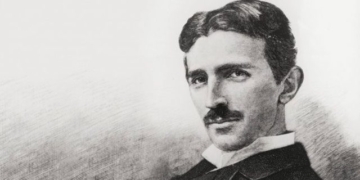Biologists believe that the horses on Sable Island are destroying the rare ecosystem on the island off the coast of Nova Scotia.
On the crescent-shaped strip of land off the province of Nova Scotia in the Atlantic Ocean, hundreds of wild horses gallop along the rolling sand dunes, their chestnut coats contrasting against the white sand and blue sea, according to the Guardian.

The herd of horses was brought to Sable Island by a trader in the 18th century. (Photo: Wirestock).
Each year, the Sable Island Institute usually sends volunteers to tally the number of dead horses over a two-week period and report the data to Parks Canada. The horse population has surged from 250 in 1961 to a record 591 last year. Biologists are concerned that these horses are harming the island’s rare ecosystem.
“From an animal welfare perspective, they live in an unsuitable environment and are heavily impacted. The annual mortality rate is very high. They also suffer from various diseases or lack access to shelter, clean drinking water, and proper food. This is a neglected animal population under significant pressure,” said Ian Jones, a biology professor at Memorial University in Newfoundland.
Sable Island is only 31 km2 and is famous for its rugged terrain and treacherous conditions. The long stretches of sand, dense fog, and strong tides around the island have sunk more than 350 ships since the late 16th century. Experts believe the horses were brought to the island by a Boston trader in the 1700s alongside pigs, sheep, and cattle. Despite the harsh environment, they survived for the longest time, relying on grass and freshwater ponds.
Over the past few decades, the number of horses has gradually increased. The isolated habitat means they are genetically more diverse compared to other populations. The horses also have very little contact with humans, making them an interesting subject for researchers.
In the 1950s, the Canadian government planned to relocate the horses for work in coal mines or for slaughter. A public campaign drew community attention to the horse herd. At that time, Canadian Prime Minister John Diefenbaker amended legislation to ensure full protection for the horses.
Parks Canada is considering recognizing the herd as a naturalized species since they have been on the island long enough to become part of the ecosystem.


















































